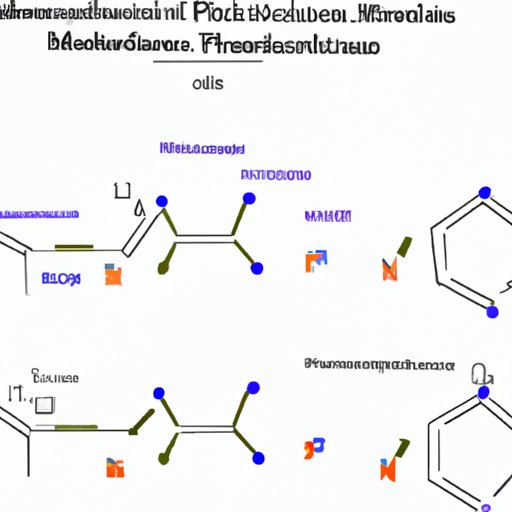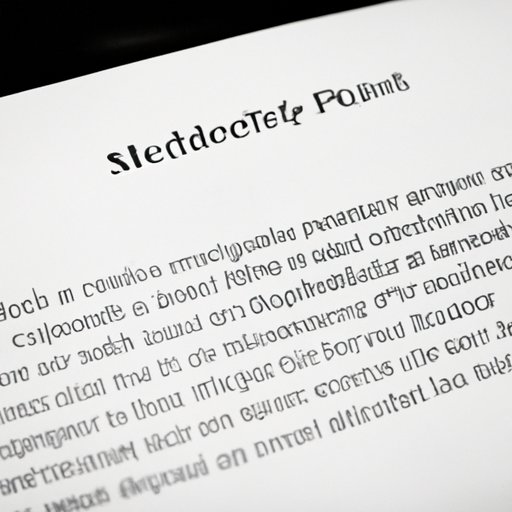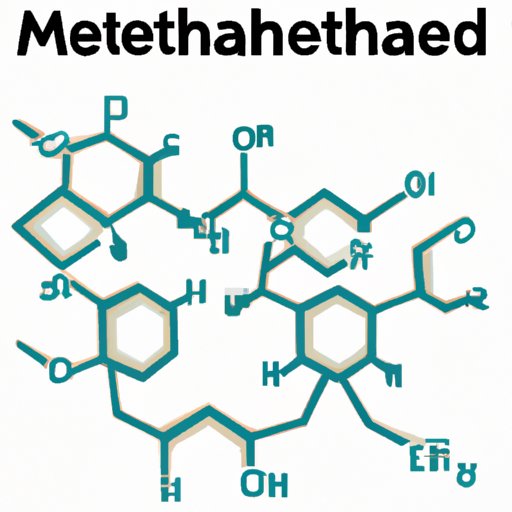Introduction
Methylphenidate is a stimulant medication commonly used to treat Attention Deficit Hyperactivity Disorder (ADHD). It works by increasing levels of dopamine and norepinephrine in the brain, which can help improve attention, focus and concentration. In this article, we will explore how methylphenidate works and investigate its effects on attention, memory and cognitive function.

Exploring the Mechanism of Action of Methylphenidate
In order to understand how methylphenidate works, it is important to look at how it alters brain chemistry. Methylphenidate works by blocking the reuptake of dopamine and norepinephrine, two neurotransmitters involved in regulating attention and focus.
These neurotransmitters are released from nerve cells in the brain, where they bind to receptors on other nerve cells. When this happens, the cells become activated, resulting in a cascade of chemical signals that can lead to improved attention, focus and concentration. Methylphenidate works by blocking the reuptake of these neurotransmitters, which allows them to remain active in the brain for longer periods of time.
It is also important to note that methylphenidate does not directly increase levels of dopamine and norepinephrine. Instead, it increases their availability, allowing them to remain active in the brain for longer periods of time.
Investigating the Effects of Methylphenidate on Attention and Concentration
Methylphenidate has been found to be effective in treating symptoms of ADHD, such as difficulty concentrating, hyperactivity and impulsivity. It can also help improve academic performance in children with ADHD.
However, it is important to note that methylphenidate is not without its risks. Some of the potential side effects of methylphenidate include insomnia, loss of appetite, headaches, stomachaches and irritability. Therefore, it is important to discuss the benefits and risks of methylphenidate treatment with your doctor before starting any medication.

Examining the Impact of Methylphenidate on Cognitive Function
In addition to improving attention and concentration, methylphenidate has also been found to have positive effects on memory and learning. Studies have found that methylphenidate can help increase memory recall, speed up learning and improve overall cognitive functioning.
It can also have a positive effect on decision-making and problem-solving. Research has shown that methylphenidate can help improve executive functioning, which is important for making complex decisions and solving difficult problems.
Conclusion
Methylphenidate is a stimulant medication commonly used to treat symptoms of ADHD. It works by blocking the reuptake of dopamine and norepinephrine, which can help improve attention, focus and concentration. It has also been found to have positive effects on memory and learning, as well as decision-making and problem-solving.
Although methylphenidate can be effective in treating ADHD, it is important to weigh the potential benefits and risks of treatment with your doctor before starting any medication. With proper monitoring and support, methylphenidate can be an effective treatment option for those living with ADHD.
(Note: Is this article not meeting your expectations? Do you have knowledge or insights to share? Unlock new opportunities and expand your reach by joining our authors team. Click Registration to join us and share your expertise with our readers.)
